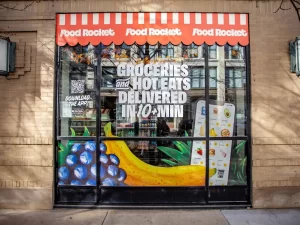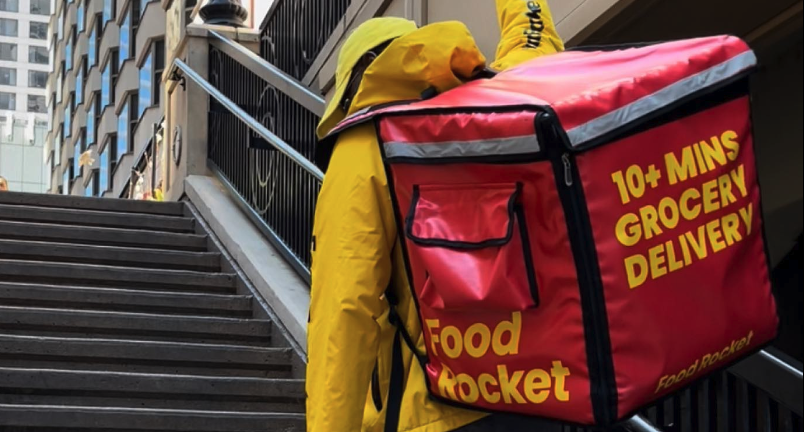Rapid grocery delivery startup Food Rocket has ceased operations, marking the latest in the ultra-fast sector to sputter out.
The company stated that in spite of overall profitability, it has exhausted its funding and ran out of capital while struggling to raise additional funding. It adds that the recent downturn in capital markets made it difficult to get a bridge from its investor Alimentation Couch-Tard, leading the founding team to make the difficult decision to shut down its operations in the U.S.
“We believe that the rapid delivery industry has disrupted the retail market and changed consumer behaviors. Unfortunately, current economic conditions reshuffled the tech market and presented significant challenges in the venture capital market. The decision to cease operations was incredibly hard, and we put in 100 percent up until the very last day, trying to stay afloat for our customers and team members,” said Vitaly Alexandrov, CEO and founder of Food Rocket.
The San Francisco-based startup launched in 2021 as one of the early pioneers to bring 10-minute deliveries to the U.S. via its fleet of bicycles and scooters, by leveraging its own micro-warehouses and dark stores.
In 2022 it landed a $25 million Series A investment from Couch-Tard. The funding was used to expand to Chicago, reinforce its AI-enabled software and enhance its team—the company was one of  the few to offer full-time employment and benefits for its riders. It also enabled the launch of operations at two Circle K convenience stores in Charlotte, NC.
the few to offer full-time employment and benefits for its riders. It also enabled the launch of operations at two Circle K convenience stores in Charlotte, NC.
Food Rocket’s downfall follows the quick-grocery boom of a few years ago where a handful of startups shooting for the moon ranked in millions in private equity funding, only to soon after go under.
Jokr, which had a $1.2 billion valuation by the end of 2022 shut down operations just a few months later. Fridge No More and 1520 also shuttered. Meanwhile, larger delivery company Gopuff recently laid off around 2 percent of its workforce, which reportedly affected more than 100 employees, its third round of major layoffs in the last year.
The rapid grocery delivery space continues to face challenges, as many cash-strapped shoppers are not as willing to spend extra on the convenience of super-fast delivery. Rising food costs have shifted trends across the industry, including in restaurants, with more consumers prompted to pick up food rather than use third-party delivery.
The U.S. market is also less inclined for daily fresh groceries—a concept popular in Europe— and more likely to buy in bulk from services like Instacart.
But that doesn’t mean the demand for instant convenience is completely fizzling. Amazon reportedly upped its investment in speedy delivery with plans to increase its “same-day site” warehouses. Amazon has opened about 45 of these sites in the last four years and could potentially expand to at least 150 in the coming years.
However, the sector proves challenging for the smaller ultra-fast startups and those headwinds will likely continue amid consumers’ response to inflation and weary investors making venture capital harder to obtain.


